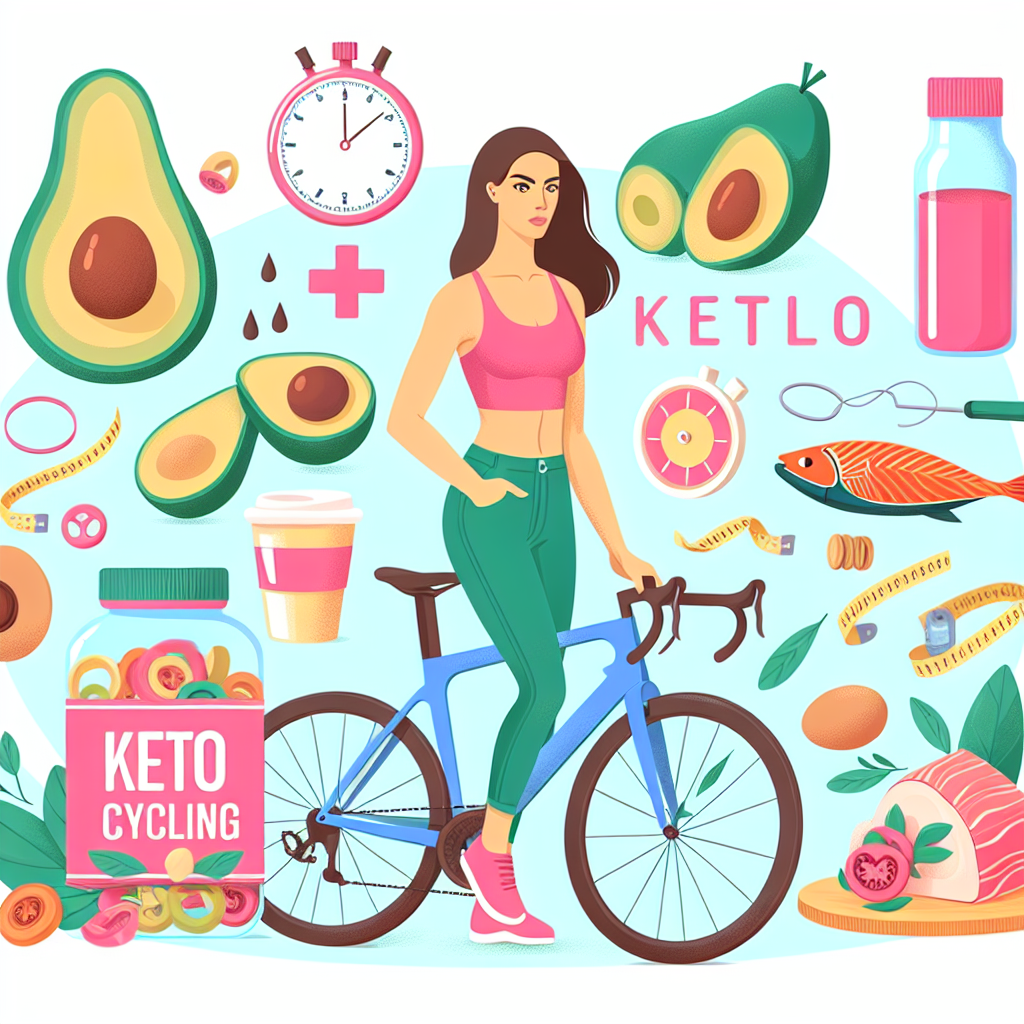
Keto Cycling for Women: Optimize Hormones with Smarter Carb Timing
The ketogenic diet is a popular approach for those seeking fat loss, stable energy, and mental clarity. In fact, a report from the International Food Information Council revealed that approximately 12.9 million Americans have tried some form of low-carb dieting, such as keto. However, for women, long-term carb restriction may lead to side effects like fatigue, hormone imbalances, irregular menstrual cycles, and thyroid issues.
This is where keto cycling—also called cyclical keto or strategic carb timing—comes in. This approach offers a more balanced and sustainable way for women to reap the benefits of ketosis without jeopardizing hormonal health.
Let’s explore how to align your carbohydrate intake with your body’s natural hormonal rhythm and why this method might be more in tune with female physiology.
What Is Keto Cycling?
Keto cycling refers to alternating periods of low-carb, high-fat eating with days that reintroduce healthy carbohydrates. On keto days, carb intake typically remains around 20–30 grams of net carbs. During carb-up days, carbohydrates may increase to 75–150 grams to support metabolic and hormonal function.
Example: You might follow a 5-days-on, 2-days-off routine—keeping meals low in carbs Monday through Friday and reintroducing nutrient-dense carbs like sweet potatoes or quinoa on the weekend.
Unlike traditional “cheat days,” keto cycling focuses on intentional carb intake from whole foods—not indulgences or processed treats. It’s a mindful, strategic method designed to support your long-term health.
Why Women Benefit from a Modified Approach to Keto
Women’s hormonal systems shift regularly throughout the menstrual cycle, which affects metabolism, mood, sleep, and even fertility. Due to these fluctuations, women have unique fuel requirements compared to men.
According to Dr. Lara Briden, author of The Period Repair Manual:
“Women have different fuel requirements due to their cyclical nature. Carbohydrates are not the enemy—they’re a powerful lever for female hormonal health.”
Strict keto over long periods may disrupt this hormonal balance and lead to:
– Missed or irregular periods
– Low libido and chronic fatigue
– Heightened anxiety or mood changes
– Sleep disturbances
– Sluggish metabolism due to thyroid dysfunction
Keto cycling provides a more flexible, hormone-friendly approach that offers metabolic benefits without the negative trade-offs.
Hormonal Benefits of Strategic Carb Timing
Strategically timed carbohydrates offer more than just “a break” from keto—they can actively support your hormonal health in the following ways:
1. Supports Thyroid Function
The thyroid gland helps regulate metabolism and overall energy levels. Prolonged low-carb intake can lead to a reduction in T3, the active thyroid hormone. A 2003 study in the journal Thyroid found that extended carbohydrate restriction can lower T3 levels. Reintroducing carbs periodically can help prevent this decline and support a healthy metabolic rate.
2. Helps Regulate Cortisol
Very low-carb diets may increase the body’s perceived stress, raising cortisol levels and contributing to that familiar “wired but tired” feeling. Adding natural carbohydrates—especially during high-stress days or following workouts—tells your body it’s safe to rest and recover.
3. Improves Hunger and Fullness Hormone Balance
Leptin (the satiety hormone) and ghrelin (the hunger hormone) can become imbalanced during strict dieting. A 2004 study in The Journal of Clinical Endocrinology & Metabolism found that short-term carb refeeds help regulate these hormones. This makes it easier to maintain weight loss and avoid those frustrating weight plateaus.
4. Promotes Menstrual Regularity
Chronic carb restriction can interfere with ovulation and menstrual function, especially during the luteal phase (days 15–28 of your cycle). Introducing carbs during this time can:
– Ease PMS symptoms
– Increase serotonin levels to boost mood
– Support the production of estrogen and progesterone
Simple additions—like an apple with almond butter in the afternoon or a side of brown rice with dinner—can make a significant difference.
How to Apply Keto Cycling Based on Your Hormonal Profile
Keto cycling isn’t a rigid program—it’s designed to be adapted to your lifestyle, hormonal status, and age.
For Premenopausal Women: Follow Your Menstrual Cycle
– Follicular Phase (Days 1–14): Keep carb intake low (20–50 grams/day). This is when estrogen rises, and your body becomes more insulin sensitive—an ideal state for ketosis.
– Luteal Phase (Days 15–28): Gradually introduce more carbs (75–150 grams/day). Include complex carbs like black beans, lentils, or quinoa to align with this higher-energy phase.
For Perimenopausal or Postmenopausal Women: Try a Weekly Cycle
Without a consistent cycle, a weekly pattern might be easier to follow:
– Monday–Friday: Stick to a ketogenic approach with no more than 30 grams of carbs per day.
– Saturday–Sunday: Include healthy, high-fiber carbohydrates—such as baked sweet potatoes or a bowl of lentils—up to 150 grams per day.
This approach supports adrenal and thyroid function while maintaining overall metabolic balance.
The Best Carbs for Hormonal Health
Not all carbs are created equal. When cycling for hormonal health, prioritize complex carbohydrates rich in fiber, antioxidants, and essential nutrients.
Top choices include:
– Sweet Potatoes (great source of vitamin A and potassium)
– Quinoa (rich in protein and iron)
– Berries (low in sugar, high in antioxidants)
– Beets (support blood flow through nitric oxide production)
– Lentils (high in folate and fiber)
– Butternut Squash (rich in beta-carotene and vitamin C)
Try this meal idea: Roast a mix of root vegetables and lentils, then top with sliced avocado for a luteal-phase-friendly dish.
Avoid ultra-processed carbs and added sugars such as soda, white bread, and pastries, which can spike insulin and worsen conditions like PCOS or insulin resistance.
Final Thoughts: Listen to Your Body
Keto cycling for women goes beyond weight loss. It’s about nurturing hormonal balance, supporting metabolism, and reclaiming energy—while still enjoying the transformative power of a ketogenic lifestyle.
Tuning into your body and adjusting your nutrition with intention can provide both structure and flexibility. As with any dietary change, consult a trusted healthcare provider—particularly one experienced in women’s hormone health—to tailor an approach that’s right for you.
Empowered eating isn’t about extreme rules. It’s about balance, nourishment, and honoring your body’s needs at every phase.
Want more tips on hormone-friendly nutrition and natural energy solutions? Subscribe to our weekly newsletter for expert-backed advice made just for women.
References
– International Food Information Council. (2021). Food & Health Survey
– Briden, L. (2018). The Period Repair Manual: Natural Treatment for Better Hormones and Better Periods
– Danforth, E. et al. (2003). Dietary composition and thyroid hormone regulation. Thyroid
– Dirlewanger, M. et al. (2004). Effects of short-term carbohydrate or fat overfeeding on energy and leptin in females. The Journal of Clinical Endocrinology & Metabolism
– Edrugstore.com/blog for insights on hormone and metabolism health


